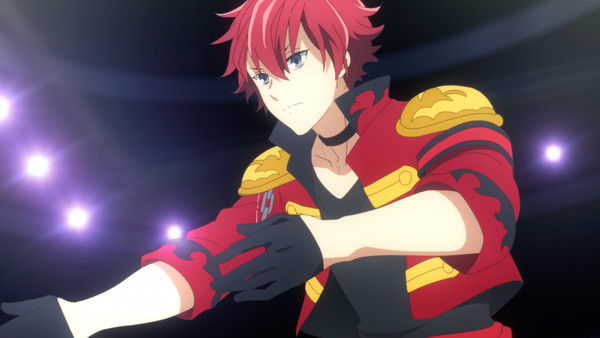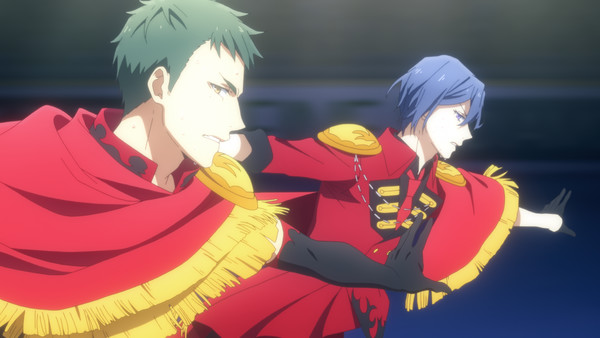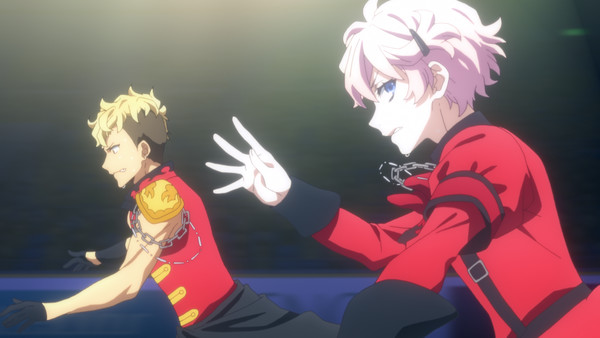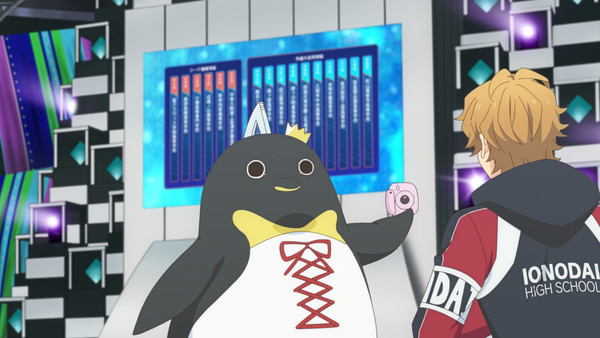Interview: Skate-Leading Stars Directors Goro Taniguchi and Riki Fukushima
by Kim Morrissy,Skate-Leading Stars tells a drama about a fictional sport called “Skate-Leading”, which is a team competition of figure skating. ANN spoke to chief director Goro Taniguchi and director Riki Fukushima regarding how this anime came to be and how they created the sports and drama.

(c)TEAM SLS/SL PROJECT 2020
(For Goro Taniguchi) How did this project first get started? What inspired you to make an anime about figure skating?
The producer from Bandai Namco Arts approached me to consult with the idea “Why don't you make an anime about figure skating?”, and that's where the project started.
What made you decide to turn figure skating into a team sport? How did you decide on the detailed rules of “Skate-Leading”?
There are already a number of works which deal with figure skating. If we were going to create a figure skating anime, the producer and I decided that we didn't want to tread the same ground. Instead, we wanted to expand the range of expression for figure skating and the fans.
Also, we felt compelled to take on the challenge of creating a new depiction, in whatever small way we could. In order to accomplish that, we decided that it would be best to create a new competitive sport.
We came up with the rules for the sport at the script stage, basing them on existing sports like soccer and baseball. At the same time we consulted with researchers and people related to figure skating as we hammered down the finer rules.

(c)TEAM SLS/SL PROJECT 2020
How have you been dividing the work with Fukushima?
When it comes to the foundational parts of the anime like the script, editing, and sound, I am heavily involved in the work. Fukushima acts according to the direction I've decided, and in particular he attends to the team handling the skating parts. He also deals with the detailed administrative work at the studio and handles questions from the staff, and so on.
This is my second time teaming up with him. He knows how to do things, and he has experience with sports anime from directing a TV series about baseball. I trust him.
(For Riki Fukushima) What kind of research did you do to portray figure skating?
I went to ice shows, and I had Hirokazu Kobayashi (Prince Ice World), the skater who did the moves used in the anime itself, skate in an ice rink. The moves created by the choreographer TETSU were done by dancers on a floor, so it was very helpful to see them performed on an actual ice rink to see how the lower body is used and the feeling of speed, among other things.
Normally, I have a casual interest in figure skating in the sense that I would watch the Grand Prix series if it happens to be on, but after I became involved in this anime, I started watching it consciously. For example, I would record things and rewatch various parts of them.
Even though the anime deals with the fictional sport "Skate-Leading", it might need some extent of the reality in the skate scene. What did you specifically pay attention to in portraying the motion in figure skating in a realistic way?
Making an animation of a performance involving five people requires a lot of calories, so I was quite conscious of cutting up the scenes and making sure that it conveys a good tempo.
If I had to make a distinction, I feel that I focused more on the beauty and resplendence of the image over portraying the techniques of skating. When it came to the parts that had to be shown in detail, I am in debt to the animators who poured so much research into it.


(c)TEAM SLS/SL PROJECT 2020
(For both) How did you develop the characters and their personalities? Given that the series has so many characters, how difficult was it to handle all of them?
TANIGUCHI: At the start, in order to get everyone sitting at the script meetings on the same page, we adapted characters from existing films, stage shows, etc. As the meetings progressed, the characters separated from their models, and we were reworking the characters in order to depict the elements important to telling the story. At that point, aspects like what they cherish and what it is that they find enjoyable became key. If those aspects overlapped with other characters, it would make them difficult to depict, so when that happened, we would adjust those characteristics accordingly.
I wasn't too concerned about the number of characters, because I have experience working on shows with large ensemble casts like Infinite Ryvius and Code Geass.
FUKUSHIMA: Taniguchi assigned the characters personalities at the start. Based on that, I let the characters act. So, I didn't find that much difficulty. There were many characters to handle, but the role given to each character was easy to grasp, which allowed me to work on it without a problem.
Do you have any favorite characters?
TANIGUCHI: All the characters are important and necessary to me. Yes, even Skatelino.

(c)TEAM SLS/SL PROJECT 2020
FUKUSHIMA: Personally, I suppose I like Jonouchi. He's quite dim-witted, but you just can't hate him… Even as far as the production is concerned, he's a particularly fun character to play around with.

(c)TEAM SLS/SL PROJECT 2020
What could be the appealing point of this sport?
TANIGUCHI: I think that it has the fun of watching an ice show. I hope that you watch it as something even more than that.
FUKUSHIMA: Skate-Leading is a group competitive sport, so I think there is an appeal not just in creating the individual skills but in synchronizing with your teammates. I think it's close to synchronized swimming and cheerleading. It's something you can enjoy as a show and as entertainment.
Do you have any messages for your overseas fans?
TANIGUCHI: I've worked on a lot of science fiction works, but this time, although it may be about a fictional sport, it is a story depicting Japanese high school club activities. I deliberately included many elements in the characters that emphasize the incompleteness seen in teenagers, such as their stubbornness, youth, and inability to communicate with others. I hope that you can enjoy those aspects as well. And of course please enjoy the skating scenes as well.
FUKUSHIMA: We made this series about the joys and conflicts of the high school-aged protagonists, expressed through skating. I think it's very enjoyable not just for its skating but as a human drama, so I humbly leave it to you!
Streaming information available here: https://skateleadingstars.com/onair/
discuss this in the forum (3 posts) |